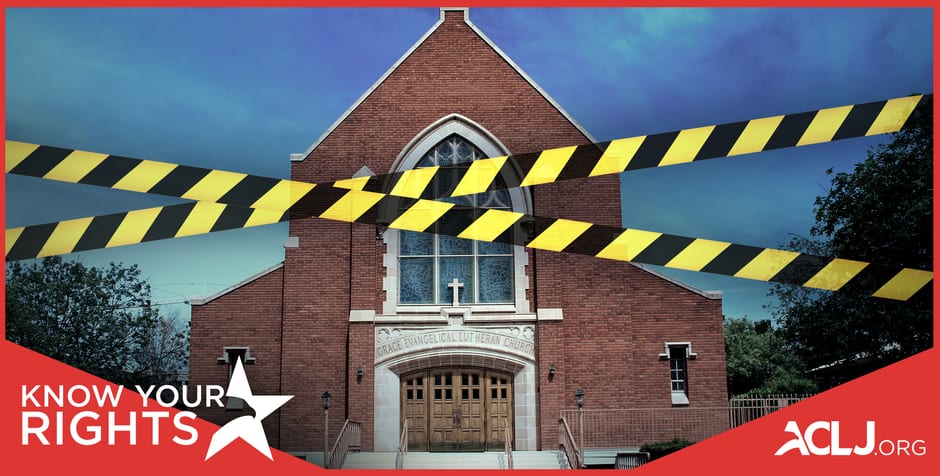Know Your Rights: Zoning Bureaucrats Cannot Discriminate Against Churches and Religious Organizations
We are seeing an increasing use of zoning rules to discriminate against churches and religious institutions, literally attempting to zone them out of existence. But this is a direct violation of federal law, and we have put together a legal memo to go over some of the key principles.
For decades, local zoning laws have been used to discriminate against those who seek to establish a church or other types of religious institution. Under the guise of such laws, religious assemblies have been illegally excluded in places where, for example, theaters, meeting halls, and other nonreligious organizations have been permitted.
In other words, zoning laws have been weaponized, at times, to deny lawful religious land use requests.
Thankfully, in 2000, Congress passed the Religious Land Use and Institutionalized Persons Act (RLUIPA), which offers protection for those seeking to use properly zoned land for religious purposes. As we point out in our memo, at the time RLUIPA was passed, Senators Orrin Hatch and Edward (“Ted”) Kennedy unapologetically stated on the record, “The right to build, buy, or rent such a space is an indispensable adjunct of the core First Amendment right to assemble for religious purposes.”
As we further explain in our memo, “RLUIPA prohibits zoning and land use laws that place a substantial burden on the religious exercise of churches and other religious assemblies or institutions absent the least restrictive means of furthering a compelling governmental interest.”
RLUIPA also prohibits zoning and landmarking laws that:
(1) treat churches or other religious assemblies or institutions on less than equal terms with nonreligious assemblies or institutions;
(2) discriminate against any assemblies or institutions on the basis of religion or religious denomination;
(3) totally exclude religious assemblies from a jurisdiction; or
(4) unreasonably limit religious assemblies, institutions, or structures, within a jurisdiction.
Our memo seeks to clarify two key RLUIPA provisions.
First, as we explain in our memo, RLUIPA forbids the disparate treatment of religious organizations, and requires that a “religious assembly or institution” be treated on “equal terms with a nonreligious assembly or institution.” Under RLUIPA, this is referred to as the equal terms provision. Here, a land use or zoning regulation will violate this provision if it treats religious assemblies or institutions worse than secular assemblies or institutions that are similarly situated as to the regulatory purpose. As our memo notes, an equal terms violation most often occurs when a local government seeks to exclude a church or religious organization from a particular zoning area in which similar uses such as theaters, meeting halls, and nonreligious clubs are permitted.
Second, our memo addresses RLUIPA’s substantial burden provision. Here, as mentioned, a local government “cannot impose a substantial burden on religious exercise unless it can prove both that it is pursuing a compelling governmental interest, and that it is using the means that are the least restrictive of religious freedom.” A municipality’s asserted interests in revenue generation and economic development or aesthetics, for example, were not determined to be compelling.
In sum, zoning laws must no longer be weaponized to unconstitutionally deny religious land use requests. The ACLJ has not backed down (and will not back down) from these unconstitutional religious attacks. (See our past legal victories here and here, for example). We are continuing to take on new clients to ensure that churches and ministries are not ostracized from local communities across the nation.
We are dedicated to defending your constitutional rights. We have been providing assistance and legal representation, at no cost or charge, to people just like you for decades. If your rights are being violated in this area, please contact us at ACLJ.org/HELP.
